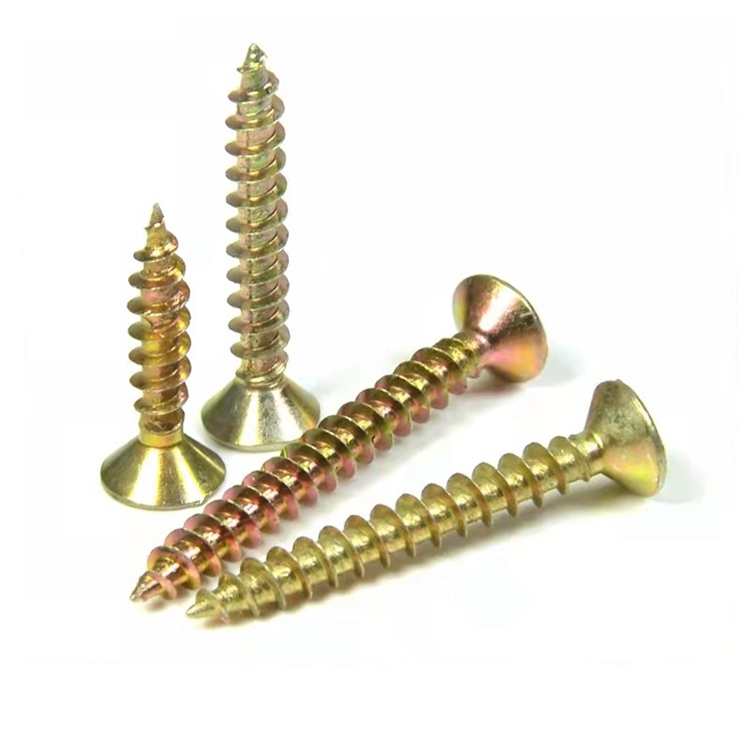u joint bolts factories
Дек . 04, 2024 17:29 Back to list
u joint bolts factories
Understanding the Significance of U-Joint Bolts in Manufacturing
U-joint bolts play a crucial role in various industries, particularly in the automotive and manufacturing sectors. These specialized fasteners, known for their distinctive joint configuration, are essential for connecting different parts of machinery and vehicles, ensuring proper alignment and functionality. In this article, we will explore the manufacturing processes of U-joint bolts, their applications, and the importance of quality control in production.
The Basics of U-Joint Bolts
U-joint bolts are designed to provide a flexible connection that allows two shafts to rotate at different angles. This feature is vital in applications such as drive shafts in vehicles, where a smooth transfer of power from the engine to the wheels is necessary. The design of U-joint bolts allows them to accommodate the oscillating movement of the joint while maintaining a secure hold on the connected components.
Materials Used in Manufacturing
The production of U-joint bolts typically involves high-strength materials capable of withstanding harsh environmental conditions and mechanical stresses. Common materials include carbon steel, stainless steel, and alloys that offer enhanced durability and corrosion resistance. Manufacturers must select the appropriate material based on the specific application and expected load conditions. The process also includes treating the materials to improve their tensile strength and fatigue resistance, further enhancing the performance of U-joint bolts in demanding situations.
Manufacturing Processes
The manufacturing of U-joint bolts generally follows a series of steps, beginning with material selection. Once the proper material is chosen, it undergoes several processing techniques, including
1. Forging This is the initial shaping process where the metal is heated and then molded into a rough shape. Forging helps improve the metal's grain structure, providing better strength and durability.
2. Machining After forging, the rough shape is subjected to machining processes such as turning, drilling, and milling. These processes refine the dimensions of the bolts and create the necessary features, like the threaded section and head.
3. Heat Treatment To enhance the mechanical properties of the bolts, heat treatment is often employed. This process involves heating the bolts to a specific temperature and then cooling them at a controlled rate, resulting in improved hardness and tensile strength.
u joint bolts factories

4. Surface Treatment Finally, surface treatments like galvanizing or coating may be applied to protect the bolts from corrosion and wear. These finishes are essential for ensuring the longevity of U-joint bolts, especially in outdoor or harsh environments.
Quality Control
Quality control is a critical aspect of the manufacturing process for U-joint bolts. Manufacturers must adhere to stringent standards to ensure that every bolt produced meets safety and performance requirements. This involves
- Inspection Regular inspections during each stage of production help identify any defects or inconsistencies. Advanced techniques, such as non-destructive testing, can detect internal flaws that may not be visible externally.
- Tensile Testing To ensure that the U-joint bolts can withstand expected loads, tensile testing is conducted to measure the strength of the materials used.
- Dimensional Accuracy Checks Since precise measurements are vital for the proper function of U-joint bolts, dimensional checks are carried out using calibrated tools.
Applications of U-Joint Bolts
U-joint bolts are widely utilized across different sectors. In the automotive industry, they are crucial components in drive shafts of cars and trucks, allowing for smooth operation during turns and uneven terrain. Similarly, in manufacturing machinery, U-joint bolts are often used in conveyor systems, robotic arms, and various mechanical assemblies where angles of rotation are involved.
Conclusion
In summary, U-joint bolts are indispensable fasteners in the manufacturing sector, providing flexibility and strength to various mechanical assemblies. The meticulous manufacturing process, combined with rigorous quality control measures, ensures that these bolts meet the high standards required for their applications. As industries continue to evolve and require more sophisticated machinery, the demand for high-quality U-joint bolts will undoubtedly increase, further emphasizing the importance of this essential component in modern engineering.
Latest news
-
Reliable Axle Nuts Supplier | Quality & Precision Fasteners
NewsAug.23,2025
-
Durable Bolts for Lawn Mower Handle - Top Supplier & Manufacturer
NewsAug.22,2025
-
High-Quality Bolts for Lawn Mower Handle Supplier & Manufacturer
NewsAug.21,2025
-
Reliable Axle Nuts Supplier | High-Quality Automotive Parts
NewsAug.19,2025
-
Premium Wire Bolts Suppliers | Durable & Reliable Fasteners
NewsAug.18,2025
-
Leading Metric Wood Screw Companies & Manufacturers
NewsAug.17,2025
